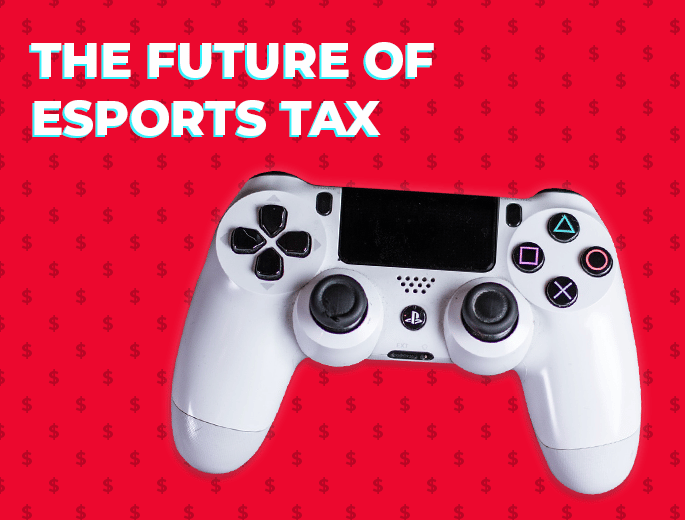
Esports tax regulations are changing rapidly. The industry is skyrocketing, and thanks to its growing status, the Tax Man is beginning to take notice. Some states are even developing programs to educate esports players and teams about their tax obligations.
But taxes aren’t straightforward in the professional gaming world because of where and how athletes make money. They travel for tournaments and sometimes play virtually, which can lead to complicated tax situations. Plus, authorities are clamoring to change employment laws, which could severely impact the industry.
The bottom line? It’s time for esports players and teams to develop a tax strategy to avoid future audits and penalties.
Why Esports Prize Money May Be Double-Taxed
Income—including esports prize money—is taxed by the state where it was earned. But what does this mean for online tournaments? Short answer: Multiple states may collect taxes from esports prize money.
Let’s say an esports phenom named “Jamie” lives in California. Not one for travel, Jamie sticks to tournaments that facilitate online matches. She plays remotely in a match run from Illinois and receives a champion’s purse. Not only does Jamie have to pay California taxes on those earnings, but she may also need to remit non-resident taxes to Illinois. We’re not just talking in hypotheticals here, either; esports player Bugha had to give up almost half of his Fortnite World Cup winnings to tax.
Andrew Gordon, President of Gordon Law Group, told the Washington Post, “The more these types of competitions become more visible, the more states will begin to enforce tax upon the gamers.”
Until now, it’s been difficult for the IRS and state tax authorities to keep track of esports earnings, since many tournaments happen online behind VPNs. But as the esports industry skyrockets in popularity and attracts big brands like Budweiser, it will also draw more and more eyes from revenue-hungry tax collectors.
Professional players who haven’t accounted for local and state regulations need to consult with an esports tax lawyer ASAP, before the Tax Man comes knocking. Now that state tax authorities are sniffing around the esports scene, it’s more important than ever for athletes to get their proverbial ducks in a row.
Planning ahead can help esports players avoid expensive tax audits in the future.
The Future of State Esports Tax
For a peek into the future of esports taxes, we can look at the history of e-commerce tax laws. When the Internet first strode onto the scene and shopping moved online, legislators grappled with the question of how to tax online sales and who should be responsible for them.
These days, thanks to a seminal 2018 SCOTUS ruling, states are now free to implement online sales taxes, and most are furiously working to do just that. To state it another way: the Tax Man won. And hey, it’s understandable. States need to raise revenue, too, and taxes are one of their main profit streams.
In some ways, the esports industry today mirrors the e-commerce industry of 30 years ago. In all likelihood, esports tax will end up with similar regulations.
Esports Players: Employees or Freelancers?
Another issue facing esports tax matters is the current push to make businesses classify workers as employees rather than independent contractors.
Currently, many esports teams don’t hire players as employees, but instead classify them as freelancers. This setup benefits teams because they don’t need to cover medical benefits and other payroll-related taxes. And many players prefer to work as freelancers because it affords them more flexibility and opens other revenue streams they couldn’t access as an employee.
But things are changing.
California was the first state to pass a law, AB5, that forces businesses to classify certain workers as employees. It’s a complicated bill, but the gist is simple: If someone works for you the majority of the time, then they’re an employee of your company and entitled to benefits. Other states are now looking to pass similar laws. There are even rumblings that a federal, fully bi-partisan version of the bill is circling Capitol Hill.
A nationwide employee bill would significantly impact the esports industry, and forward-thinking teams should start assessing strategies in case it passes.
Some bigger leagues, like Call of Duty and Overwatch, are already surveying the landscape and establishing rules and procedures that will keep them out of Uncle Sam’s warpath. They’re keeping better records about who won what, where, and will likely submit those records to authorities in compliance with esports tax reporting obligations.
Online tournaments and VPN use will also probably trigger some changes. It would not surprise us at all if, in the near future, tournaments stop allowing the use of VPNs during online tournament play. They may even require participants to declare their address and state.
Consult with an Esports Tax Lawyer
Gordon Law Group is one of the few firms in the nation with a dedicated esports tax team. If you’re an individual player or a team that wants to operate above board while holding onto as many profits as possible, we can walk you through the process and develop a tax strategy that’s ideal for your exact situation.
Let’s talk about how you can save money on your esports tax responsibilities.




